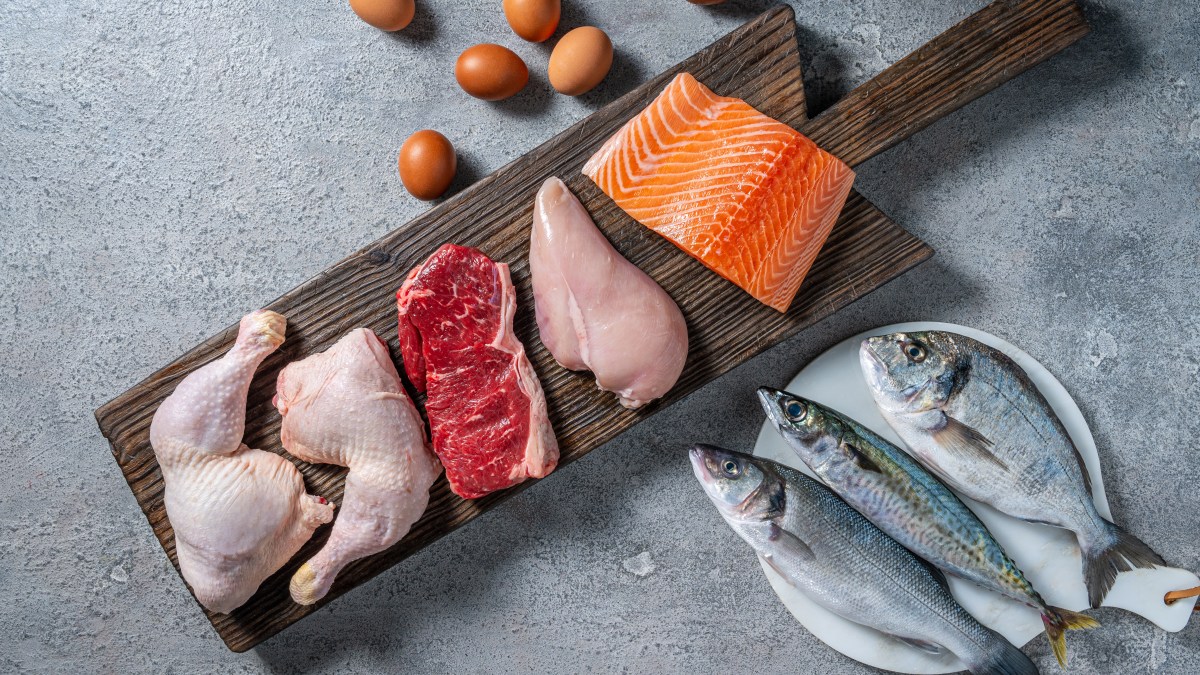Check your food sources
Vitamin B12, also called cobalamin, is vital for healthy nerves, DNA, red blood cells and brains. It also plays a role in breaking down homocysteine, a protein in our bodies that is one of many factors linked to an increased risk of heart attacks. A type of anaemia called pernicious anaemia can be caused by B12 deficiency although this is not related to dietary intake. While the human body has some capacity to store it in the liver, the NHS says adults need a daily intake of around 1.5mcg from the diet.
“It is found naturally only in animal products such as liver, red meat, eggs, fish and dairy, including fermented varieties such as kefir and yoghurt,” says Ian Marber, a nutrition therapist. “There are no natural plant sources although useful amounts are present in fortified plant foods, some milk alternatives and cereals.” A 200ml glass of cow’s milk, an egg or slice of cheese, a portion of meat or fish and a yoghurt will provide enough.
• Are you getting enough Vitamin D, B12 and magnesium?
Take a supplement if you eat a mostly plant-based diet
Other than fortified foods, natural plant sources of vitamin B12 do not exist. “There are myths about certain foods such as spirulina and the seaweed nori having traces of it, but they are not enough to be considered a source,” says Rhiannon Lambert, a registered nutritionist and author of The Science of Plant-Based Nutrition. “And nutritional yeast does not contain B12 unless it has been fortified with it.”
Your best option is to take a supplement. A paper published by a collaboration of British scientists suggested that adults following a vegan, vegetarian or mostly plant-based diet should take a daily supplement containing 4-7mcg of vitamin B12 regularly. “If you are concerned about a deficiency, speak to a healthcare professional who will prescribe supplementation that works for you,” Lambert says. “Don’t just take a very high dose supplement and hope for the best as it doesn’t guarantee you will absorb the B12 you need.”
• Vitamin D supplements could counter ageing, study suggests
Keep an eye on warning signs of deficiency as you age
About 15 per cent of the population has a B12 deficiency at any time although the NHS says it is more common over the age of 75. “This is partly due to a significant decline in stomach acid causing the vitamin to be less well absorbed after the age of 55,” Marber says. Some medications also adversely affect absorption in older people. The consequences can be significant. In February a study published in the Annals of Neurology by researchers at the Quadram Institute in Norwich and the University of California showed that older healthy adults with low vitamin B12 concentrations, but still above the threshold for a deficiency, showed signs of sharper cognitive decline. Symptoms of a B12 deficiency include fatigue and weakness, memory loss and confusion.
“DIY blood tests are not always an accurate measure of B12 status,” Lambert says. “It is very important for anyone of any age to see a health professional who can assess other blood markers for a deficiency.”
